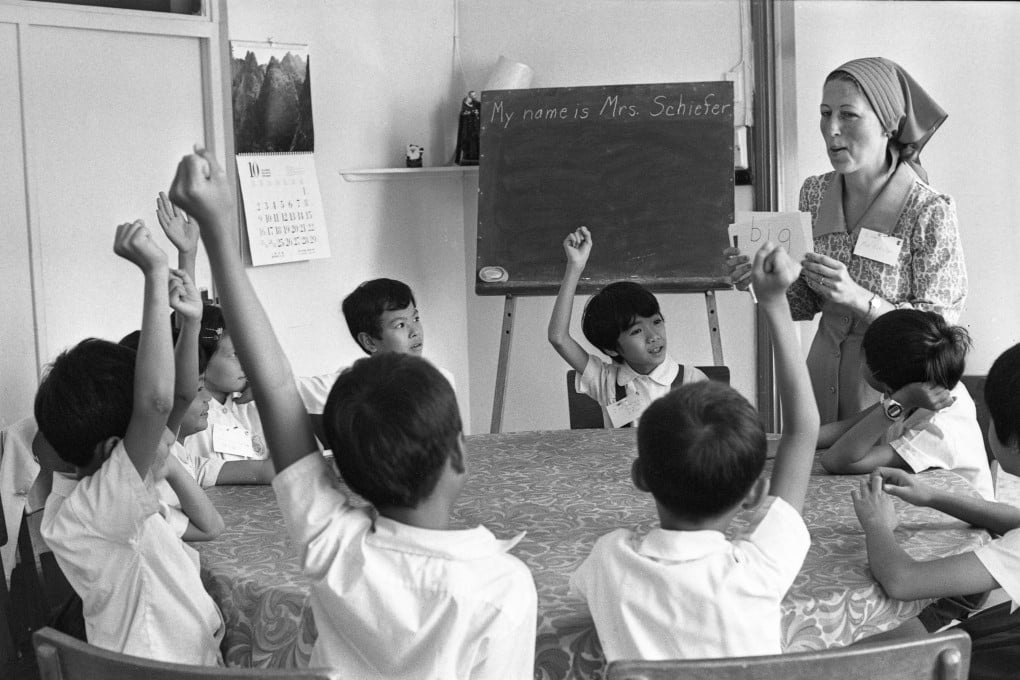Then & Now | What is one’s ‘first language’ in Hong Kong when Cantonese, English and others can meld together in the mind?
- One day I spent in a Portuguese household 25 years ago opened a window to a multilingual world that is fast disappearing
- For some, being brought up from infancy around a number of languages makes them simultaneously at home in each and none of them

Personal circumstances dictate what one speaks as a first language. But what happens when several are used at the same time, which also means that no single one predominates, either in spoken or written form, and thus they congeal into a primary “language of the mind”?
For some local people – of whatever ethnic origin – mixed code teaching in what were considered the more superior Hong Kong schools, and being forced to learn in a foreign language – English – to which most students had little everyday exposure, had that effect.
Some excelled in the language of the classroom – in the Hong Kong way, where outward form is generally mistaken for underlying substance – and oral fluency created the misleading impression that rather more occurred between their ears than might have been the case.
Others gave up in anger and despair, and the potential for pathways into other worlds that different languages, and the diverse ways of thought that they reveal, might have brought, was wasted. A lifelong sense of cultural inferiority – which could be manifested in all manner of sad and destructive ways – too frequently was the result, and permanently blighted their lives.
For a few, being brought up from infancy around a number of languages made them simultaneously at home in each and none of them. A fascinating morning, more than 25 years ago, spent discussing aspects of Hong Kong life during the Japanese occupation with a prominent local Portuguese couple, offered an illustrative example.
Our conversation continued over a delicious minchee-fan lunch, after which my hostess made her excuses, and left me behind with her husband to wind up our talk. Soon afterwards, three elderly local Portuguese ladies appeared in the sitting room with her; this was their regular afternoon for ba-fa, and it was her turn to host their gathering.
